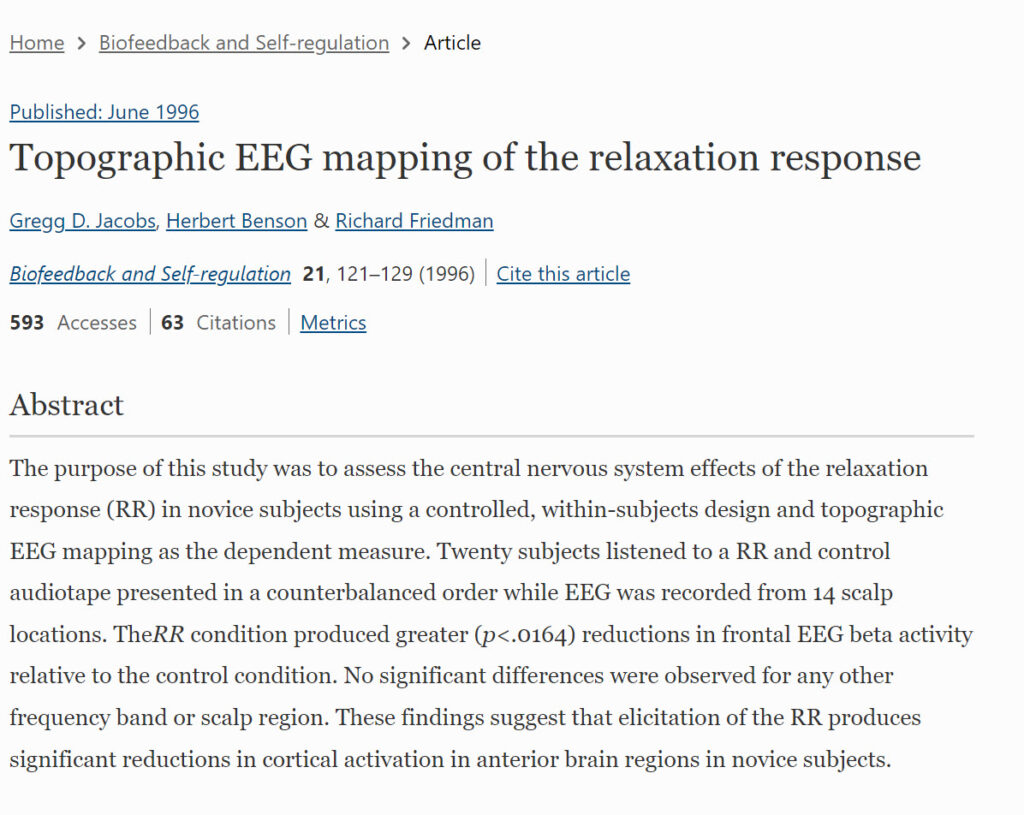Publication
Biofeedback and Self-regulation
Volume 21, pp. 121-129
Abstract
The purpose of this study was to assess the central nervous system effects of the relaxation response (RR) in novice subjects using a controlled, within- subjects design and topographic EEG mapping as the dependent measure. Twenty subjects listened to a RR and control audiotape presented in a counterbalanced order while EEG was recorded from 14 scalp locations. The RR condition produced greater (p < .0164) reductions in frontal EEG beta activity relative to the control condition. No significant differences were observed for any other frequency band or scalp region. These findings suggest that elicitation of the RR produces significant reductions in cortical activation in anterior brain regions in novice subjects.
Web and Email Links
Related Listings
Journal
Behavioral Medicine
To clarify the mechanisms of gender-related mind/body relationships, the authors analyzed the characteristics of 1,132 outpatients (848 women and 284 men) attending a mind/body medicine clinic. At entry in the program, the patients completed the Medical Symptom Checklist, Symptom Checklist-90 revised (SCL-90R), and Stress Perception Scale. Women reported 9 out of 12 symptoms (fatigue, insomnia, headache, back pain, joint or limb pain, palpitations, constipation, nausea, and dizziness) […]
Journal
Science
Sympathetic nervous system activity was assessed in experimental and control subjects who were exposed to graded orthostatic and isometric stress during monthly hospital visits. After the first session, the experimental subjects practiced a technique that elicited the relaxation response. Their concentrations of plasma norepinephrine during subsequent graded stresses were significantly higher. No such changes were noted in the control group. These results were then replicated in the c […]
Journal
The Journal of Nervous and Mental Disease
A cross-sectional national telephone survey was used to determine whether Christian Scientists (N = 230), a religious group that uses mind/body (including spiritual) healing, self-report more or less illness than non-Christian Scientists (N = 589). The primary outcome measure was the proportion of Christian Scientists and non-Christian Scientists that, during the previous 12 months: a) experienced any of 13 common medical conditions or symptoms; and b) used conventional medicine, unco […]

